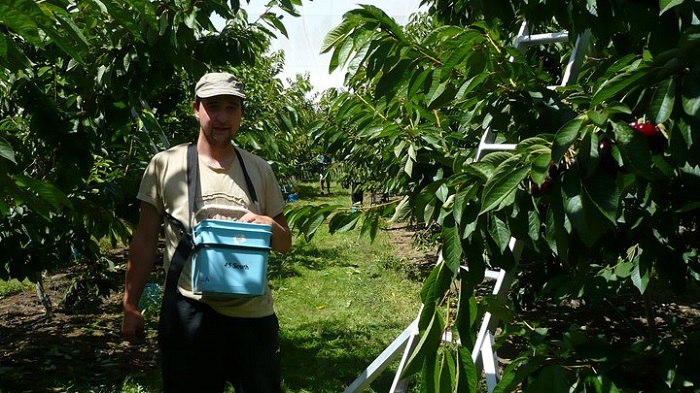Rural scheme to attract seasonal workers
Rowan Schindler
03 November 2021, 4:12 PM
 A government funded push to attract young Kiwis to rural councils for seasonal work will kick off soon, but Central Otago will run its own programme. Photo: RNZ.
A government funded push to attract young Kiwis to rural councils for seasonal work will kick off soon, but Central Otago will run its own programme. Photo: RNZ.With the big OE still out of reach for many of New Zealand’s twenty-somethings, a new initiative is promising to attract workers from elsewhere in the country, however Central Otago will devise its own 'Spare Room, Spare Time' scheme.
Think Rural is the brainchild of LGNZ’s Mayors Taskforce for Jobs (MTFJ), with funding from the Ministry of Social Development.
The central idea is to attract young people from cities to rural areas where there is a wealth of jobs on offer – and give them a chance to experience a new way of life, packed with adventure, excitement and opportunity.
Eighteen rural councils are behind the Think Rural scheme in the hope of drawing a younger crowd.
They are Ōpōtiki, Ōtorohanga, Central Hawke’s Bay, Chatham Islands, Gore, Ruapehu, Waimate, Westland, Wairoa, Hurunui, Tararua, Grey, Rangitikei, Clutha, Hauraki, Mackenzie and Buller.
But Central Otago will not be a part of it, and will instead run its own 'Spare Room, Spare Time' programme.
Unfortunately, as Central Otago District Mayor Tim Cadogan points out, Central Otago is not considered a rural council.
“Regrettably CODC is not deemed a rural council under the LGNZ banner due to our population size, so we are not part of this initiative.
“Having said that, I think it is an excellent initiative.”

With less backpackers and a shortage of labour, Central Otago will work on a programma to attract Kiwis for seasonal work.
Mayor Tim says Central Otago will instead devise its own scheme in attracting workers to the district, particularly during the likes of harvest season.
“In terms of the efforts being made to attract people to come and work here, Central relies on significant numbers of people coming in to the region for seasonal labour,” Mayor Tim says.
“Estimates have us needing 6 - 7,000 people to do exactly that in the peak of this coming cherry season.
“Locals are encouraged to help through the ‘Spare Room, Spare Time’ campaign which targets locals, and their friends and family from out of the district, to be a solution to the predicted seasonal labour shortage.”
At the peak of demand in December and January, Central Otago requires approximately 6000 seasonal workers to assist in the horticulture, viticulture sectors for the summer season.
“These staff would normally be sourced through the government-backed RSE scheme, international backpackers and, to a lesser extent, local youth, but COVID-19 restrictions mean for a second summer workers are harder to come by.”


